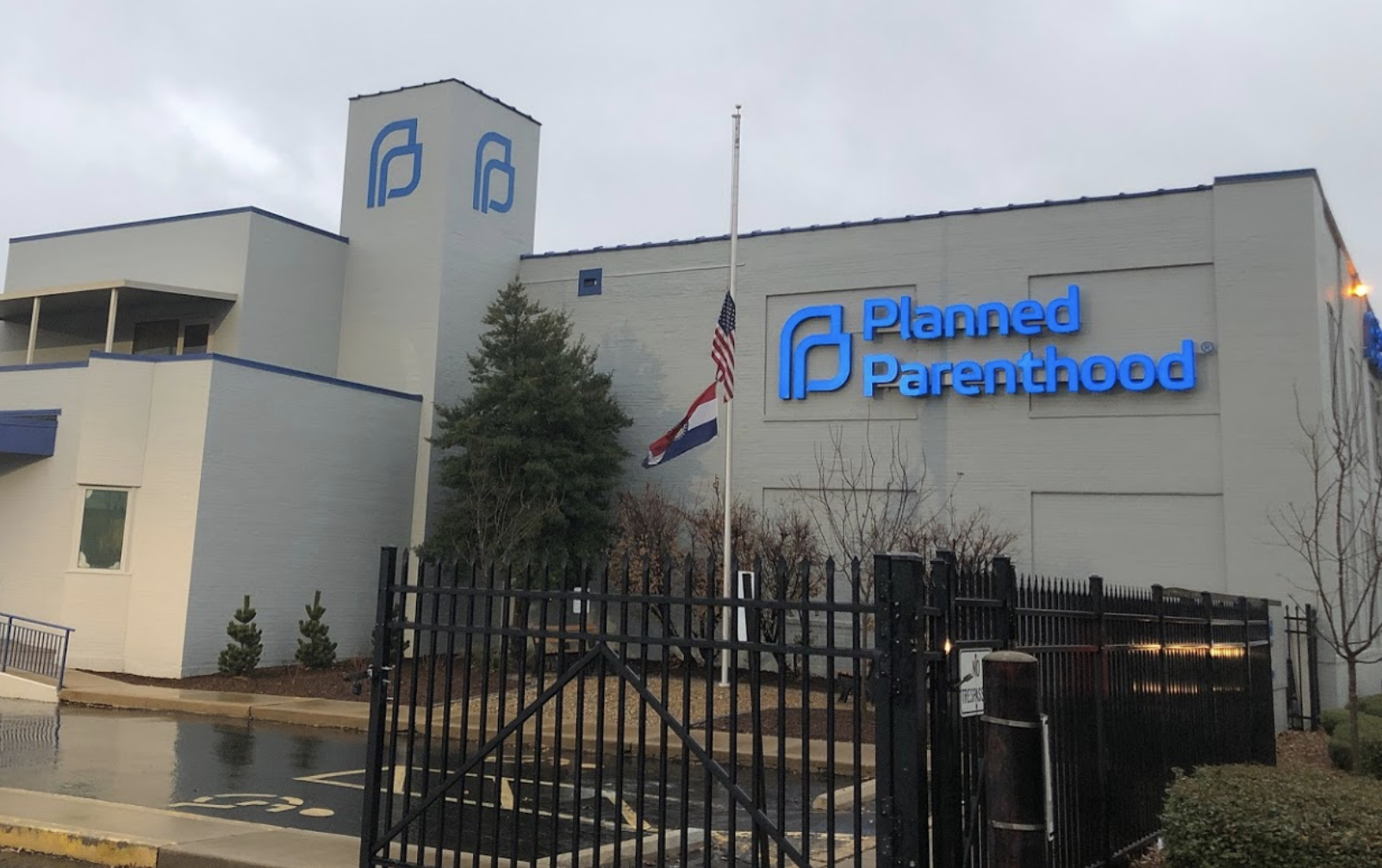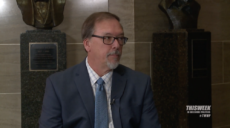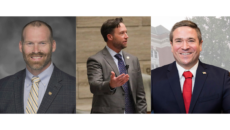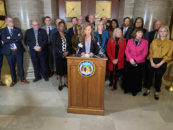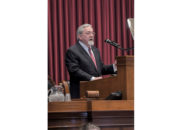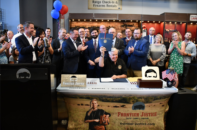Attorneys for the state focused on a provision preventing abortions based on a prenatal Down syndrome diagnosis as the battle over Missouri’s abortion law continued in federal court Tuesday.
Attorney General Eric Schmitt’s office argued the case before the Eighth Circuit Court of Appeals Tuesday morning, focusing the debate on provisions in the bill restricting abortions based solely on the diagnosis of Down syndrome. Schmitt said the angle was a “relatively new issue before the court” and argued the restriction emphasized “all life is sacred.”
“We have to ask ourselves who we want to be,” Schmitt told reporters following the hearing. “Do we want to be a nation that pressures women and families into believing the life of an individual with Down syndrome is not worth celebrating? Or do we believe that this diagnosis should not be an automatic death sentence and that we shouldn’t target an entire group of people simply because they have a certain trait?”
Schmitt contrasted Missouri’s legislation with the Texas law allowed to take effect last month. That measure allows individuals to sue abortion providers and does not include a section regarding those diagnosed with Down syndrome.
Reproductive Health Services of Planned Parenthood of the St. Louis Region, the sole abortion provider left in Missouri, initially sued, prohibiting HB 126 from going into effect. The clinic’s lawyers argued the bill, which would also restrict abortions after eight weeks, constituted a ban in the state and violated precedents set by the U.S. Supreme Court.
President and CEO Yamelsie Rodriguez previously said Planned Parenthood would continue the fight and warned of the possible “injustice” if the restrictions were to go into effect.
“Today it’s Texas, tomorrow it could be Missouri,” Rodriguez said. “The dominoes are falling fast and the consequences will fall hardest on people of color, people with low incomes, and rural communities.”
Schmitt said he hoped for a quick ruling on the case.
HB 126, signed into law by Gov. Mike Parson in 2019, included “nestled” components placing additional restrictions at 14, 18, and 20 weeks and did not allow for exemptions for rape or incest survivors. Violation of the measure would be a class B felony.
A federal judge blocked the bill from being implemented the day before it was set to go into effect in 2019, a decision that was appealed to the Eighth Circuit Court of Appeals. A three-judge panel stymied the law in June, upholding the injunction based on the state’s argument that the language constituted bans on abortion.
Schmitt appealed the decision to the U.S. Supreme Court the following month. However, in a rare move, the appeals court granted a rehearing en banc on its own motion, meaning it would rehear the case as a full court.
The fate of abortion across the nation hangs in the balance as a pending Mississippi law awaits consideration by the U.S. Supreme Court. Approval of the law, which sought to ban abortions after 15 weeks, would essentially overturn the 1973 landmark case Roe v. Wade, which set the standard 24-week window in federal abortion policy.
Missouri officials, including Parson and members of Missouri’s congressional delegation, have urged the court to side with Mississippi in the case and allow states to exercise control over abortion policies.
The U.S. Supreme Court is set to hear the Mississippi case in December.

Cameron Gerber studied journalism at Lincoln University. Prior to Lincoln, he earned an associate’s degree from State Fair Community College. Cameron is a native of Eldon, Missouri.
Contact Cameron at cameron@themissouritimes.com.

